The Lexus LF-A is a Mistake
The fastest way to kill an automotive brand: sell a POS. The bloodletting caused by a brand new clunker can be spectacular. Anyone remember the 1981 Cadillac Fleetwood V-8-6-4? How about the Cimarron? It has taken Caddy more than 20 years to climb back from that double debacle if, indeed, they have. But there’s another, slower and more insidious way to ruin a storied car brand: distraction. When a carmaker builds a vehicle that muddies the marque’s core message, it mortgages its future. To wit, the Lexus LF-A.
Of course, the Porsche Cayenne used to personify the problem– before the sports car maker released its SUV. Once the Cayenne smashed sales records, purists’ caviling quieted. How can you argue with success? Never mind the long-term effects on branding. Never mind that Porsche’s using the money to buy VW. The market has spoken. Which reminds me of the old punch line, “We’re just arguing over price.”
Talk to me in ten years, when the bloom is off the rose. Meanwhile, building a car that’s a genre too far is one thing. Offering a product that completely betrays your brand values is another. I don’t need to resurrect my arguments against the so-not-a-luxury-car Lexus IS-F. Actually, I do. The new LF-A supercar takes the exact same mistake made by the IS-F to the next level, combing brand betrayal with yet another cardinal sin for automotive brand managers: the halo car.
Like anything else, there are halo cars and there are halo cars. There’s the deeply misguided (I don’t have the money to buy a Nissan GT-R so I guess I’ll buy a Maxima instead) and the just plain dumb (who the Hell can afford THAT?). The best way to separate the wheat from the carbon fiber titanium-covered chaff (needed at those speeds): the price difference between the halo car and the next model down. Discounting aesthetic, genre and brand focus differences, the larger the price gap, the more ill-fated the endeavor.
The Lexus LF-A will sticker for a cool $225k. The next model down, the LS600h hybrid sedan, costs $104,900. The $120,100 price gap elevates the LF-A from desirable range topper to WTFer– and dooms it to failure.
Just ask Daimler, whose slated-for-execution Mercedes McLaren SLR AMG supercar was a major flop at $495k (not including discount). Or Porsche, whose $440k Carrera GT ceased production 230 cars shy of its stated sales target. And these are brands with heritage, whose prestige and racing history makes their stratospherically-priced products inherently collectible.
The counter-argument is entirely emotional. Supposedly, all halo cars cast an unquantifiable glow over the brand’s more prosaic products. The LF-A will drop-kick Lexus’ stodgy image, making all Lexi more appealing. If I was a Lexus stockholder, I’d be uncomfortable with any multi-million dollar investment based on psycho-babble. If I was a brand manager, I’d want statistical proof that Lexus’ image is somehow lacking amongst owners or intenders, and that a supercar would rectify this theoretical problem.
Toyota is a wealthy company. They can afford to make mistakes like the LF-A without losing any metaphorical sleep. But it is a particular KIND of blunder, one that reveals a dangerous new turn in ToMoCo’s corporate attitude.
Speaking of baseless psychological speculation, I believe that building and selling a supercar is a bold statement of corporate health and vitality. Can you imagine Ford releasing its $140k GT now? A halo/supercar says to the world, look at us! THIS is what we can do! (Or never mind the Focus, THIS is what we can do!) But there’s a fine line between being bold and hubris, and hubris and stupidity.
This is why Toyota has cultivated a corporate culture based on paranoia. Fear keeps you focused. You never, ever forget the downsides of any of your potential actions. You always look for the safest option– especially when you’re doing something dangerous. Traditionally, the Toyota Way follows Sun Tzu’s dictate: never to fight a battle unless you know you’re going to win. It’s not for nothing the first Lexus looked like a Mercedes E-Class.
The new Tundra’s sales targets represented a huge miscalculation by the Japanese automaker’s product planners that will cost Toyota billions. And now, the LF-A boldly goes where Toyota has never gone before, both in terms of money and image. Why? For what are they trying to compensate? Lexus would have been far better off transforming their dopey SC into a credible Mercedes SL challenger. Or continuing to refine what they already have. Or just sending their loyal customers a nice “thank you” service voucher.
I know TTAC’s Best and Brightest welcome automotive excellence in all its forms. But sometimes excellence is boring, and comes from slow, steady progress. It’s a lesson Toyota taught the world. The LF-A is another step towards unlearning it.
More by Robert Farago
Latest Car Reviews
Read moreLatest Product Reviews
Read moreRecent Comments
- MaintenanceCosts I wish more vehicles in our market would be at or under 70" wide. Narrowness makes everything easier in the city.
- El scotto They should be supping with a very, very long spoon.
- El scotto [list=1][*]Please make an EV that's not butt-ugly. Not Jaguar gorgeous but Buick handsome will do.[/*][*] For all the golf cart dudes: A Tesla S in Plaid mode will be the fastest ride you'll ever take.[/*][*]We have actual EV owners posting on here. Just calmly stated facts and real world experience. This always seems to bring out those who would argue math.[/*][/list=1]For some people an EV will never do, too far out in the country, taking trips where an EV will need recharged, etc. If you own a home and can charge overnight an EV makes perfect sense. You're refueling while you're sleeping.My condo association is allowing owners to install chargers. You have to pay all of the owners of the parking spaces the new electric service will cross. Suggested fee is 100$ and the one getting a charger pays all the legal and filing fees. I held out for a bottle of 30 year old single malt.Perhaps high end apartments will feature reserved parking spaces with chargers in the future. Until then non home owners are relying on public charge and one of my neighbors is in IT and he charges at work. It's call a perk.I don't see company owned delivery vehicles that are EV's. The USPS and the smiley boxes should be the 1st to do this. Nor are any of our mega car dealerships doing this and but of course advertising this fact.I think a great many of the EV haters haven't came to the self-actualization that no one really cares what you drive. I can respect and appreciate what you drive but if I was pushed to answer, no I really don't care what you drive. Before everyone goes into umbrage over my last sentence, I still like cars. Especially yours.I have heated tiles in my bathroom and my kitchen. The two places you're most likely to be barefoot. An EV may fall into to the one less thing to mess with for many people.Macallan for those who were wondering.
- EBFlex The way things look in the next 5-10 years no. There are no breakthroughs in battery technology coming, the charging infrastructure is essentially nonexistent, and the price of entry is still way too high.As soon as an EV can meet the bar set by ICE in range, refueling times, and price it will take off.
- Jalop1991 Way to bury the lead. "Toyota to offer two EVs in the states"!


















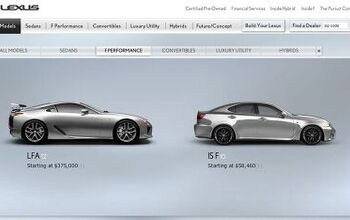
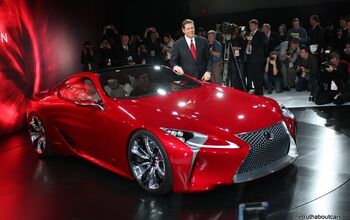
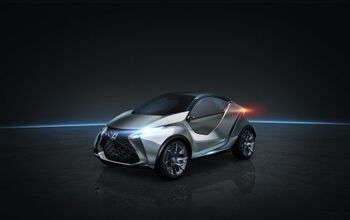
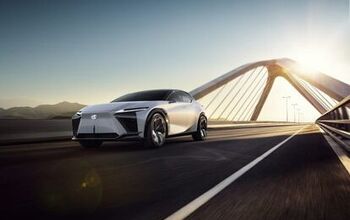
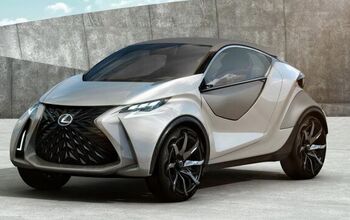










Comments
Join the conversation
Affalterbach : 2000GT was a fail for the same reason as the Lexus sports car: brand extension. As for Toyota pissing away their money in F1, I couldn't agree more. I mean we do agree, right? Honda NSX? Another epic fail. Both in the past and the future. Same reason. Next question?
I'm so sorry but you fail to answer most of my questions. The pre-NSX Acura was a decent make, but not a good one. The NSX changed all that. Do you remember people gawking at the Acura-dealerships at the NSX? Or how it considerably improved its brand image? Our perception of Acura, as a sporty and a good-value maker was developed to an extent by the NSX. 2000GT put the obscure Toyota into spotlight in the USA, created news for it, and was an exercise in advertising on wheels. A lot like the NSX. Also, you claim that Toyota has an excellent corporate structure(make smart decisions), but how would they not know the MASSIVE costs they pay for F1?. I mean surely, they had something in their minds before they allocate precious corporate resources to their F1 that's barely competitive. The answer is that it is sort of a Halo-car. A corporate statement. Pespsico, Coca-cola, McDonalds, Disney spend millions on trying to maintain and keep a particular brand-identity. Toyota does the same by participating in F1. So is building a Halo-car for Lexus. Keep in mind that Lexus is very weak in Europe. Even in America, compare their numbers versus the Germans. You will also realize that its the ES, and not the LS that defines the brand. Hyundai, as we know is aiming for that (and the GS) with its Genesis.